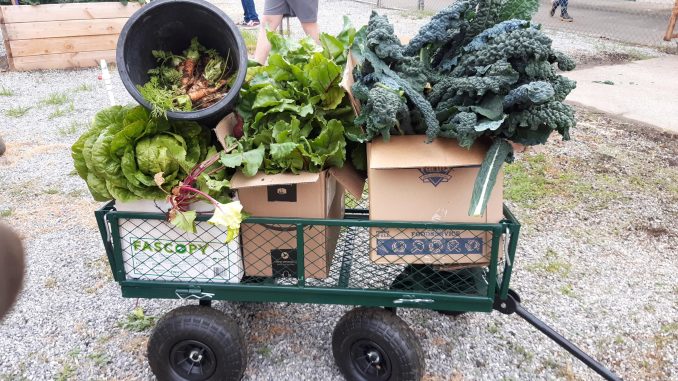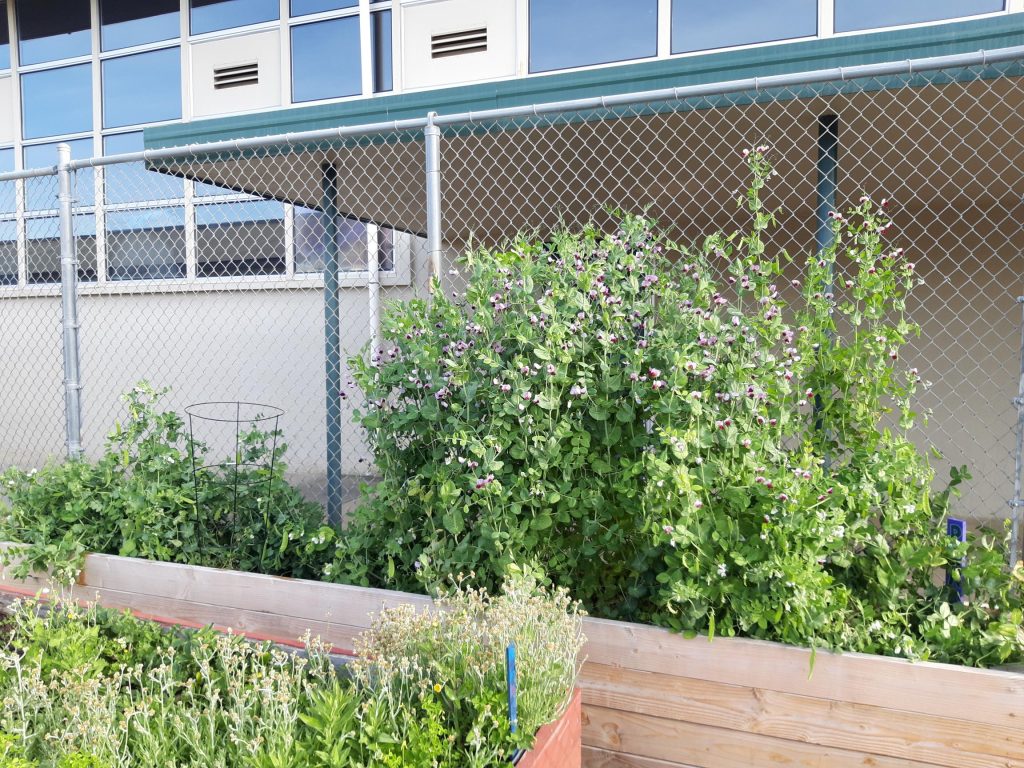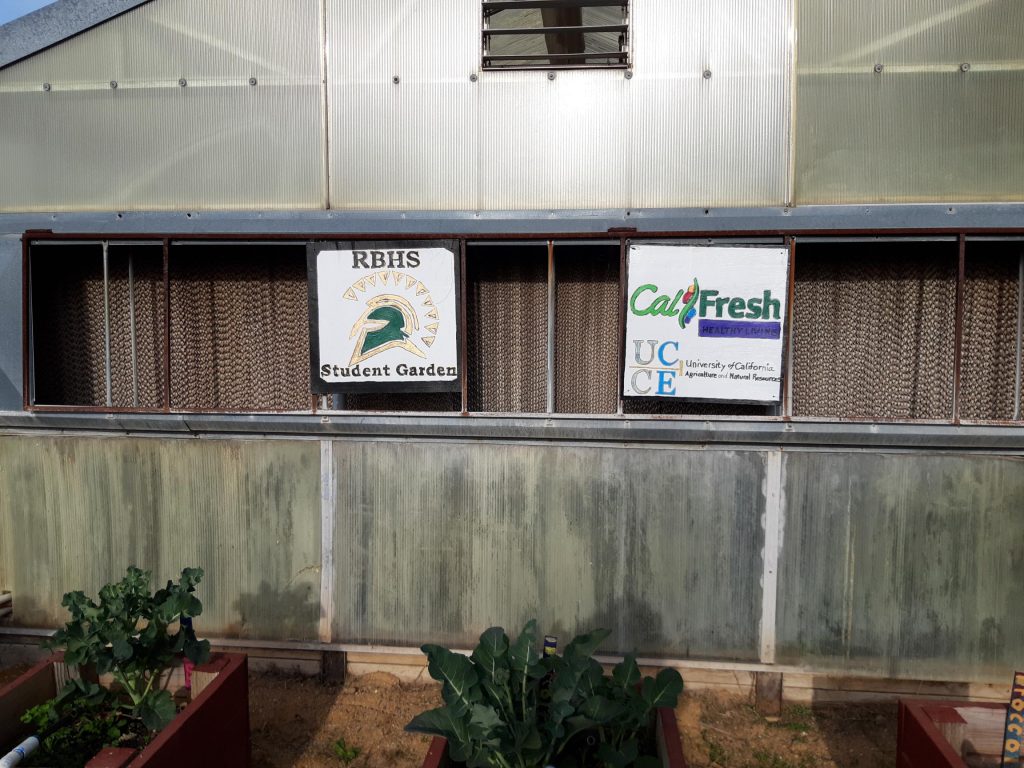
Marissa Stevens has been the Director of Nutrition Services for Red Bluff Joint Union High School District for eight years. When she was hired, Stevens had a personal goal: to bring a sustainability-garden-to-cafeteria program to the district.
Two years ago, that goal got some much-needed help. “We were awarded a grant through the UC SAREP (Sustainable Agriculture Research Education Program), for sustainable food-systems research and outreach,” Stevens says. “This grant award fueled our capability to build a garden and incorporate students to learn sustainable gardening practices. It also gives our students the opportunity to plant crops and harvest them to be incorporated into the student and staff meals in Red Bluff JUHSD.”
Red Bluff High School uses a curriculum provided by the UC Cal Fresh Extension. TWIGS, or Teams with Intergenerational Support, focuses on gardening and nutrition. TWIGS also supports self esteem, decision-making skills and teamwork.
“Michele Fries (from the Workability Program) and Suzana Ewert (Garden Coordinator from the UC CalFresh extention) were the main staff involved in teaching the students about the garden,” says Stevens. A few topics covered: weeding, non-chemical pest control, seed planting and transplanting, seed anatomy, germination and irrigation.

“Students from the Eco Club, Workability Program and the special education department plan seed and harvest crops in the garden. The students have also worked on sustainable irrigation systems in the garden area creating their own drip systems for garden beds,” she says.
With the help of the wood shop students, they built composting bins so that all food scraps can be dropped in and are ready to compost. “The crops from the garden were then harvested and brought to the cafeteria where we would incorporate the produce into our school meals,” she says.
While the 2022-2023 school year was focused on the internal structure of the program, the school did provide fruit and produce to the student body at lunch-time. Examples include kale and romaine, snap peas, squash, cucumbers, beets, peaches, blueberries, strawberries, basil and broccoli.
“Our goal for this upcoming school year is to utilize two new grants we were awarded to increase scratch cooking and increase local foods in schools. With these funds, we plan to increase composting equipment, add education to our students on the subject, and train staff to monitor and ensure students are composting foods appropriately,” Stevens says. “Our goal is to get students excited about composting by having the education and materials not just come from myself and educators, but rather their peers.”

The planning, work and execution of this program have already produced benefits for the students: They see their hard work being rewarded when the fresh produce is incorporated into nutritious meals served at school.
“This program has been one of the highlights in my career. There is nothing more rewarding than seeing students in a socioeconomic disadvantaged area, who may not be able to afford fresh fruits and vegetable or eat meals with fresh ingredients, learn how to grow the food items themselves and how to prepare and consume them,” Stevens says proudly, adding it could not be possible without the full support from Red Bluff JUHSD.

For more information on SB 1383 and how it will affect Tehama County residents, visit www.tehamacountylandfill.com. This article was funded by a grant from CalRecycle.

